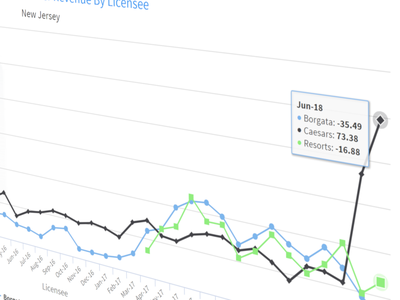The online poker room cited the constantly changing regulatory environment as a reason for its decision, but many also believed that the move could have been partially motivated by the upcoming launch of the shared liquidity network. France, Italy, Spain, and Portugal Sign Shared Online Poker Liquidity Agreement. Shared liquidity helped online poker rooms operating under the Caesars license notch sequential year-over-year increases of 42% and 73% in May and June, respectively, while other New Jersey online. Tri-state shared liquidity announcement engages online poker players throughout the country. United States online poker players in three states received great news on April 16th when they learned that New Jersey, Nevada and Delaware player pools will share liquidity starting Tuesday, May 1st. “We believe shared liquidity across regulated markets is a tremendous advantage to growing a healthy poker community,” says Matt Primeaux, president of FOX Bet (PokerStars’ sports betting counterpart), “which in turn contributes towards potential taxes for the state and to a stronger and more sustainable regulated online gaming industry. The agreement has been signed, between the regulators, for online poker to share liquidity between Italy, France, Spain and Portugal: To date, all the voices claim that it is a positive thing, is.

On Thursday, Sept. 19 at 9:19 a.m. PT, Nevada will officially have two legally regulated online poker sites running in full effect. While the idea has been lingering for quite some time — and will continue to do so — federal regulation of the online poker market in the U.S. still seems fairly distant. Rather, regulation will come on a state-by-state basis. At the time of the official launch of WSOP.com on Thursday, only three states have legalized online gambling — Nevada, New Jersey, and Delaware.
On a conference call earlier this week surrounding the launch of WSOP.com, Caesars Entertainment Interactive Chief Executive Officer Mitch Garber stated, 'This is really the beginning of a domino effect, the same way that the state of Nevada started land-based casino gaming and you’ve seen the proliferation of casino gaming across the U.S. We believe that the digital age will repeat that very same pattern.'
On the conference call, Garber said shared liquidity with other states will happen, but couldn't promise a pact between Nevada and New Jersey. He did say that small states need to opt in, though.
As my colleague Rich Ryanwrote in his Five Thoughts piece, 'New Jersey’s online floodgates are scheduled to open toward the end of November, and Atlantic City plays host to five Caesars properties. Both Caesars Atlantic City and Harrah’s Atlantic City have WSOP-branded poker rooms and host World Series of Poker Circuit stops that residents could satellite into.'
When it comes to shared liquidity, it's no secret that states with smaller populations will benefit, including Nevada. With a population roughly three and a quarter times the size of Nevada, a state like New Jersey could offer quite the influx of players if a site were to share player pools between the two states. What are the greater benefits of shared liquidity besides the common idea of larger player pools for the online sites, though? According to WSOP Executive Director Ty Stewart and VP of Corporate Communications Seth Palansky, it's variety.
'I think it's just not about tournament prizing. Although I agree it's powerful, just look at the [World Championship of Online Poker],' said Stewart. 'It's about variety — the more players, the more games, and the more buy-in tiers you can have.'
Palansky added, 'It’s giving people the variety they wish — immediately. And when I say variety, that is three-fold: 1. Buy-in level, 2. Game variant, 3. Cash game vs. tournament vs. sit-n-go vs. satellite. And when I say immediately, that is very important, too. No one wants to waste time sitting around waiting for others to show up. You log on, you want to get into action.'
Variety is good, and being able to have a growing variety comes as a direct result of having a larger player pool to pull from, but it could also lend itself to a competitive edge amongst the sites. Right now, Ultimate Poker — the first legally regulated online poker site in the U.S. and WSOP.com's direct competitor — only offers no-limit and limit hold'em. WSOP.com has said it will have a few more poker variants available in pot-limit Omaha, limit Omaha eight-or-better, limit seven-card stud, and limit seven-card stud eight-or-better. This favors WSOP.com it terms of shared liquidity. When you increase your player pool, you need more options to satisfy your customers. Without those options, customers will head elsewhere. WSOP.com is also Mac-compatible, and Ultimate Poker is not. It may seem as though Ultimate Poker breaking the first-to-launch barrier and becoming the first to deal 10 million hands has put them far ahead in the game, but WSOP.com looks more prepared to handle growth.
'When you think of all the options that players expect, it’s a wide variety,' continued Palansky on the idea of providing options for players. 'Players need that because they log on with different goals in mind. Some folks have only 30 minutes to play. Some have high-stakes ambitions in mind. Some prefer stud over no-limit [hold'em] and vice versa. You just need to have enough full tables at all possible combinations to satisfy the varying demand at all levels for all games. To offer folks a choice of vanilla, chocolate, or strawberry may work when you are selling milkshakes, but poker is a skill game requiring much more to quench a player’s thirst.'
Other benefits to shared liquidity include awareness of how lucrative online poker can be to not only other states, but also on a federal level. This is exactly the 'domino effect' Garber was talking about. Shared liquidity can also mean more live tournaments held at land-based casinos in the involved states and increased tax revenue for those states involved, although the latter can be directly tied to the increased player pools.
With New Jersey hoping to launch online poker later this year in November and Caesars owning several properties in the state, it's really only a matter of time before WSOP.com expands to a second state. Whether or not the two states will share player pools is still yet to be determined and would hinder on an interstate pact between Nevada and New Jersey.
When asked about WSOP.com's future plans in terms of shared liquidity, Palansky said that is 'impossible to answer now.' He went on to add, 'We’re happy to get our feet in the water with our launch in Nevada and see what that brings, and we hope to grow with the Nevada market and any other future markets that open up in the U.S. We will obviously take a position that favors the poker community and poker players.'
The last line is something the WSOP has always toted, and that is looking out for the poker community and the players. Like any product or venture in the world, there is always going to be criticism, which there has over the years of the WSOP. Despite the criticism, the WSOP has grown year after year to the massive spectacle it is today and now has marquee events in Australia and Europe on a regular basis to go along with the summer in Vegas. WSOP.com is highly expected to follow along with the same goals of keeping the best interest of the players and the community in mind.
Another big point to make is that online poker — a projected $7.4 billion business by 2017 — can create many new jobs. At a time where the job market isn't exactly booming and the economy is still building itself back up, it could almost be viewed as downright ignorant for states to ignore the idea of online gambling, let alone actually putting it into practice. This point can also be made on a federal level. WSOP.com is hoping it can help spread awareness of what online gambling, specifically poker, can do on both the state and eventually the federal level.
'If [the government] chooses to offer some legislation federally, it would likely make shared liquidity on a state level moot,' said Palansky. 'With no federal legislative input, states will do what is in their best interests. We as a company will be patient. We are happy to prove the marketplace, the technology, etc. We are happy to help educate and show folks this is a smart, viable opportunity for states to keep and create jobs and taxes in the U.S. This will all lead to what poker players want, we just will have to be more patient.'
Palansky later added that there are no specific targets for WSOP.com outside of New Jersey and Delaware being at the forefront. 'We believe this is a 35-45 state industry in due time,' he said. 'We can’t control the timing. We’ll help do what we can to help states see the benefits. We will apply for licenses when the opportunities present themselves, and we’ll participate in markets that want to have us. Liquidity is really a poker, and to a lesser extent, bingo issue. States will all do things a bit different, and we understand that liquidity shouldn’t be the priority for them.'
California is one of the states closest to legalizing online gambling, and with a population more than four times that of New Jersey would be paramount in terms of shared liquidity for a site. While Palansky didn't cite any specific plans for WSOP.com and California, he did say, 'When a law is passed, we will prepare for the opportunity that presents itself if we are able to do so.'
It's not going to be all about the push from the online sites, though, and Palansky pointed that out, citing that involvement and interaction from the poker-playing community itself is needed.
'We would hope that poker players can help be the early adopters in this new, regulated world in the U.S., support an operator in their market, and help prove it to those who passed laws for it and are regulating it that it is working and working well,' said Palansky. 'It is that which will lead to states eventually working together on liquidity and giving the players what they seek. But if players don’t start playing from the get go, the message to other states will be that this isn’t a viable business worth exploring, and that will be detrimental.'
One of the things to help entice players to get involved, and get involved early, will be the WSOP Europe satellites available at launch on WSOP.com. Following that, 2014 WSOP satellites are expected to be available shortly after WSOP Europe takes place 'at the very, very latest' according to Stewart. There's no question that live events all over the world benefit from online satellites, and even the WSOP Main Event has in the past. Still, the WSOP Main Event never had any online satellite winners that qualified through the company's own platform, and this could be a game changer moving forward.
'We know the demand is there,' said Stewart in regards to how much the WSOP Main Event could benefit from the WSOP.com online platform and shared liquidity in the future. 'We just have to be able to supply the service. I think the 2014 Main Event will benefit immediately from Nevada — and hopefully New Jersey — as we'll be offering year-round satellites and promotions. I can't yet speculate on how many seats we can generate, but consider we created approximately 400 seats for the Main Event just through live satellites of persons physically in the Pavilion Room from June to July. Obviously it's much more convenient to play from home and have multiple buy-in tiers.'
'Perhaps those who operated in the U.S. pre-Black Friday have a better sense of the player pool that existed, etc.' added Palansky. 'We have never been in this business in the U.S. before. We’re excited for the opportunity. Like Ty said on the call, we have qualified zero players to the Main Event in our 43-year history via an online platform. We will definitely be doing so now, so we’re pleased at that, and we hope we’re faced with the dilemma of needing a bigger venue than the Rio to host this event one day.'
The big WSOP boom is often credited to the effect Chris Moneymaker's famous win in the 2003 WSOP Main Event had on the game. Both Stewart and Palansky agree that online poker at WSOP.com being coupled with future shared liquidity will lend itself to an uptick in numbers once again.
'Ultimately, we will see more players actually enter the Main Event through Internet qualification — more than even pre-UIGEA,' said Stewart. 'It may take five years, it may take 10, but it will happen. I truly believe it. What people don't realize is that much of the time players who supposedly won entry to the WSOP through an offshore site never played, they never came to Vegas. In most cases, the operators used the tournament name solely for their benefit to acquire customers, but the tournament and the prize pool didn't benefit. We have a vested interest in seeing the Main Event grow and break records, and we plan to be committed to that all year round.'
'I think back in 2003, a match was lit and it caused an explosion,' added Palansky, referencing the poker boom attributed to the 'Moneymaker Effect.' 'In 2013, a match will be lit and it will cause a fire to start. The fire will keep burning and growing. It will be a slow burn, but one that snowballs as opposed to getting extinguished.'
It's still left to be determined as to whether or not various states that legalize online gambling will participate in shared liquidity through common online poker sites, but with so many properties around the U.S. and a platform built to handle growth, it surely looks as though WSOP.com is prepared and ready. It's clear that shared liquidity has far more benefits than not for the poker community, and should be something promoted by the poker-playing community, the sites themselves, and the states involved.

Get all the latest PokerNews updates on your social media outlets. Follow us on Twitter and find us on both Facebook and Google+!
Tags
Chris MoneymakerGambling legislationNevadaNew JerseyOnline PokerTy StewartWSOPRelated Room
888pokerRelated Tournaments
World Series of PokerRelated Players
Chris MoneymakerTy Stewart
Contents
New Jersey state senator Ray Lesniak’s swansong at the end of his senatorial career has been a proposal that the state should allow New Jersey regulated online poker operators to share liquidity with their international markets.He has submitted Senate Bill S3536 which states in part:
Online Poker Shared Liquidity Accounts
“Notwithstanding any other provision of P.L.2013, c.27 (C.5:12-95.17 et al.), wagers may be accepted thereunder from persons who are not physically present in this State if the Division of Gaming Enforcement in the Department of Law and Public Safety determines that such wagering is not inconsistent with federal law or the law of the jurisdiction, including any foreign nation, in which any such person is located, or such wagering is conducted pursuant to a reciprocal agreement to which this State is a party that is not inconsistent with federal law.”
Online Poker Shared Liquidity Ratios
Theoretically, this could allow New Jersey players to play in cash games and tournaments against players from countries such as France, Germany or Paraguay. In practice, this won’t be so easy, and the idea that New Jersey players could shortly be playing in the international dot-com pool is probably unrealistic at least in the medium term.
Legal and regulatory issues may prevent international liquidity pooling
From the regulatory viewpoint, France, Germany, and Paraguay represent three completely different cases. France has a national regulator, Germany has a State Treaty on Gambling which has been all but overturned by the courts, and Paraguay has no regulatory framework for online gambling.
PokerStars operates in all three countries, but it holds a French license from regulator ARJEL, operates in Germany under license from EU member state Malta, and in Paraguay under its Isle of Man license—which covers all its dot-com operations. 888poker and partypokerare in the same boat.
In summary, regulated online poker falls into three categories:
- Online poker is regulated nationally, or at the state level, and operators need a local license.
- Online poker is not nationally regulated but a supra-national license is accepted by the local legal system. For example in the EU, a license from the Malta Gaming Authority (MGA) is supported by EU law as valid in all EU countries which don’t have their own national regulation.
- Or there is no national regulation and an international license from an offshore jurisdiction such as the Isle of Man has no local legal authority but is supported by World Trade Organisation (WTO) rules.
Sharing liquidity in each instance presents a completely different set of problems for the New Jersey Division of Gaming Enforcement (DGE).
Senate Bill S3536 contains restrictions on shared online poker liquidity
Stripping out the language of the bill, it is clear that there are three main restrictions to putting shared liquidity into practice. Wagers may only be accepted by New Jersey regulated online poker rooms where they are:
Online Poker Shared Liquidity Strategy
- not inconsistent with federal law
- or the law of the jurisdiction, including any foreign nation, in which any such person is located,
- or such wagering is conducted pursuant to a reciprocal agreement to which this State is a party that is not inconsistent with federal law.
The second restriction is the real killer. It immediately makes it almost impossible to establish shared liquidity with any country which doesn’t have its own national or state legislation. WTO trade rules won’t be a factor—New Jersey will want to be certain that the national laws governing any players playing against New Jersey players will permit them to do so legally.
That pretty much rules out New Jersey players from participating in the global dot-com player pool.
It probably also rules out establishing an agreement with the MGA in Malta to create some form of a shared pool with the EU.
What’s left are the segregated player pools in countries where regulation restricts the market to national residents, and there aren’t many of these.
The easy route to shared liquidity is to deal with EU segregated markets

Spain, France, Italy, and Portugal segregate their players from playing in the global dot-com player pool. France actually allows foreign residents to play at nationally regulated online poker rooms, but only if they are allowed to by their own national legislation.
At first sight, France may appear to be a good first port of call for New Jersey regulators looking to add liquidity, after all, France has just issued PokerStars with the first ever license that would allow them to share their French player pool with Spain and Italy.
PokerStars needs similar licenses to be issued by Italy, Spain and possibly Portugal before it can combine its segregated market player pools, but the Rubicon has been crossed. It should be noted that PokerStars is the only online poker operator that operates in all four of Europe’s segregated markets and is likely to be the prime beneficiary of shared liquidity.
Tax issues could halt shared liquidity in its tracks
Players at UK licensed online poker operators are not allowed to play on French licensed poker sites. PokerStars won’t allow a British resident player to open an account at PokerStars.fr. The law doesn’t prevent this, the regulators are happy with it, but PokerStars simply can’t afford it.
The UK point of consumption tax means that any British player playing at PokerStars.fr would make the company liable to pay both French and British taxes on the player’s activity—and the two tax systems are themselves completely different. The double taxation makes sharing liquidity between the UK and France a non-starter.
New Jersey will encounter similar problems if it is allowed to share online poker liquidity internationally. Yet one of the bill’s intentions appears to be to increase revenues for New Jersey, both for the industry and government.
In the bill’s preamble, Senator Lesniak has written:
“Since its inception under P.L.2013, c.27 (C.5:12-95.17 et al.), Internet gaming has resulted in economic benefits to Atlantic City and to this State, and is estimated to have produced, within the first three years of implementation, approximately $998 million in economic output, over 3,000 jobs, $219 million in employee wages, and $124 million in tax revenues, of which $84 million derive from Internet gaming revenue alone. The provisions in this act, P.L. c. (C. ) (pending before the Legislature as this bill), permitting Internet gaming equipment to be located outside of the territorial boundaries of Atlantic City if necessary to facilitate the conduct of international wagering, would increase the economic benefit of Internet gaming to Atlantic City and to this State.”
Online Poker Shared Liquidity Ratio
If New Jersey finds a deal to share liquidity with France, it should not expect the French to give up tax revenues they currently collect from their citizens. Any deal would likely follow the line that operators providing French players pay French taxes and those with New Jersey players pay New Jersey taxes.

For the big operators like PokerStars, partypoker and 888, there doesn’t seem to be any reason why adding players from another country to their New Jersey player pool should result in any additional investment in New Jersey.
In fact, if the solution they adopt involved gameplay being located on the servers in France—as Lesniak’s bill allows—then they might even be able to reduce their costs in New Jersey.
What benefits could New Jersey get from shared liquidity?
Shared liquidity is unlikely to increase New Jersey employment or add to New Jersey revenues, in which case politicians will have to ask themselves what is the point?
And here the case boils down to the potential additional profits that operators can make. New Jersey operators simply can’t afford to run regular $1 million guaranteed tournaments because they don’t have enough players to cover the guarantee.
If the player pool can be expanded to one or more of the large EU markets, then the position changes radically. The marketing power of million dollar prize pools will become available, and online poker participation rates and per capita revenues should increase.
This is the indirect route to the state gaining additional revenues and potentially more employment.
Throw in benefits from the interstate compact with Delaware and Nevada, add the extra that Pennsylvaniacould provide and New Jersey could see material gains.

An additional bonus will probably be more players switching away from offshore unregulated poker rooms and joining the safer state-regulated poker offering.
All in all, even if Senator Lesniak’s bill does pass, New Jersey players are unlikely to suddenly find that they can once more play against the rest of the world. Nevertheless, some form of international agreement could well see a limited liquidity increase which combined with current and future US interstate compacts might provide a much healthier regulated online poker market to the advantage of all.